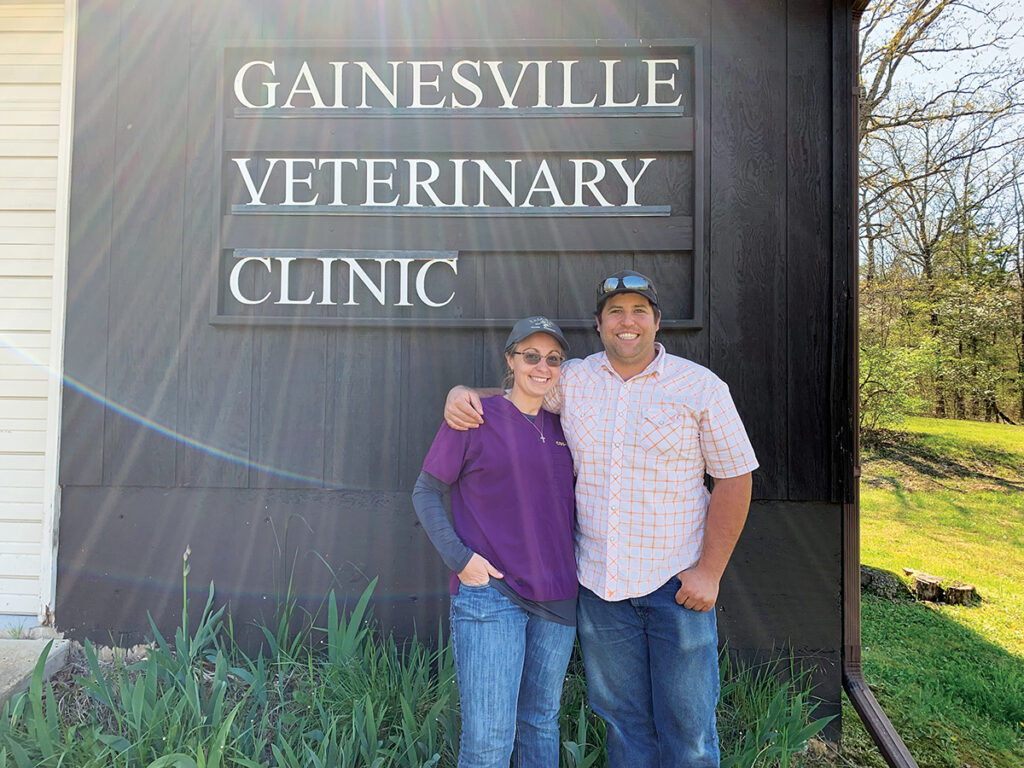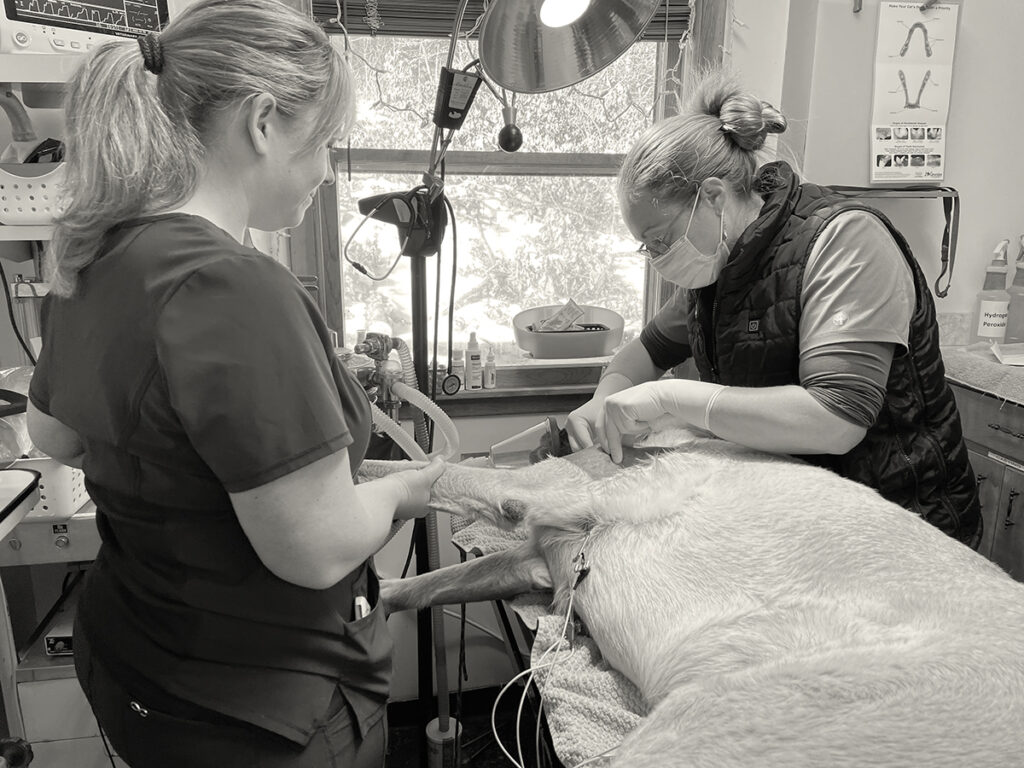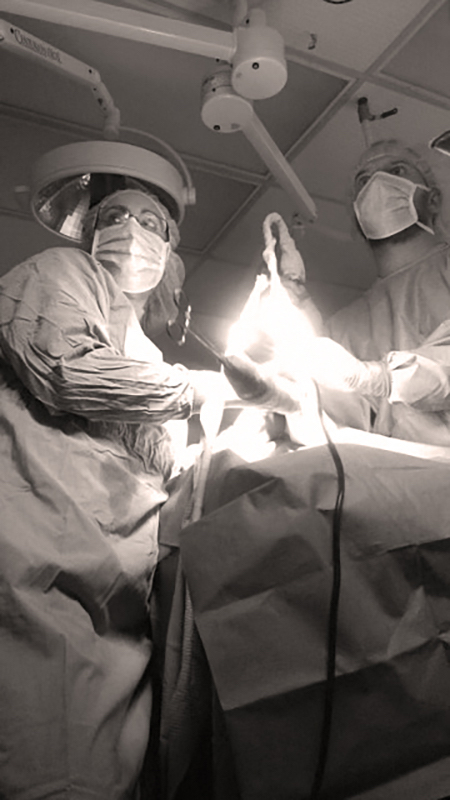ANIMAL INSTINCT
Practicing in a rural community

By Coleman Cornelius | Jan. 1, 2023
DR. KATLIN HORNIG didn’t want to return the phone call. She had just failed an owner’s horse – telling a potential buyer that the Quarter Horse mare was not fit to purchase – and, now, the owner was calling to ask about the rejection. Hornig figured he would be angry over her findings and his lost sale.
“I called back,” the young veterinarian remembered, “and he said, ‘Other vets said everything is OK – that this mare is fine. But I knew something was wrong with her. Will you tell me what you found?’”
Through physical exam and X-rays, Hornig had diagnosed the horse with “kissing spine,” a condition in which bony projections of the vertebrae rub together and cause pain that can be hard to pinpoint. The good news: Regular injections of synthetic joint fluid and steroids can ease discomfort and allow a horse to fully function.
That’s exactly what the owner asked Hornig to provide. She promptly had a new client – and now visits his large barn each week to care for barrel-racing Quarter Horses.
“It’s all based on really good medicine,” she said of the outcome.
Hornig grew up on a small horse and cattle ranch near Alamosa, Colorado, in the San Luis Valley. At age 7, she knew she wanted to become an animal doctor when a veterinarian arrived to remove “wolf teeth” – unneeded teeth that can cause pain – from a young Belgian draft horse. The vet plopped the extractions in her hands, and “I knew it’s what I wanted to do,” Hornig said. “When your heart has a passion for medicine, you want to do all you can to help an animal feel better.”
HOW SHE PAID
- Boettcher Scholarship
- Jobs on and off campus
- Federal student loan
- Manageable debt


She earned a prestigious Boettcher Scholarship and attained a bachelor’s degree in animal science at Colorado State University, followed by a Doctor of Veterinary Medicine at the CSU veterinary school, ranked No. 3 in the nation. Hornig practiced for a time in Colorado and New Mexico and married a classmate, Dr. Bryan Luark, who also is from rural Colorado. He, too, earned both an animal science degree and a D.V.M. at CSU.
In 2020, the couple bought a small, slow-paced veterinary practice in Gainesville, Missouri. It is the only vet clinic in the small town. But it didn’t stay slow paced for long: Clients drive to the clinic from several hours away, and Hornig and Luark typically work 12- to 18-hour days treating pets, horses, and livestock. They recently hired another veterinarian to help with the caseload.
Hornig and Luark attribute their business growth to their faith, work ethic, and dedication to excellent medical care for animal patients and effective communication with owners. “God has taken care of us, that’s the biggest thing – along with teamwork and having a great partner,” Hornig said.
Her days are filled with the surprises and rewards of mixed-animal practice – giving a goose a prosthetic beak, treating a diabetic alpaca, delivering a calf by Cesarean section.
“It touches your heart,” Hornig said of her work. “We’ve always said, ‘You go into veterinary medicine because you love animals, but the reason you stay in veterinary medicine is because you love people.’”
Photo at top: Dr. Katlin Hornig, 31, is from Alamosa, Colorado, and graduated from CSU in 2012 with a bachelor’s degree in animal science, followed by a Doctor of Veterinary Medicine in 2016. Hornig practices at a clinic she and her husband, Dr. Bryan Luark, own in southern Missouri.
SHARE
